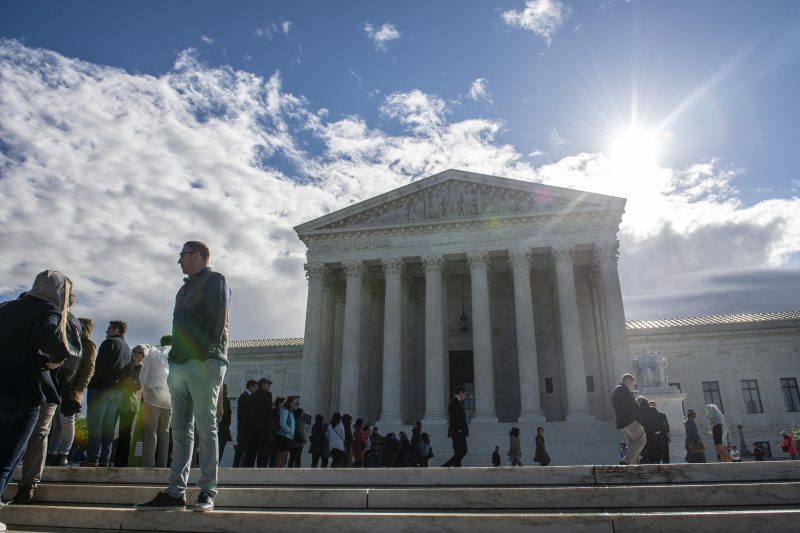US Supreme Court declines to change double jeopardy rule
Tourists line up to visit the US Supreme Court on April 15, 2019 in Washington (Eric BARADAT)
Washington (AFP) – The US Supreme Court on Monday upheld a longstanding rule stating that prosecuting someone separately in state and then federal court for the same crime does not violate a defendant’s protection against double jeopardy.
Americans have long understood that they have a right against being tried twice for the same crime, but since the mid-19th century that protection has only applied within the same sovereign legal system, such as a state court or federal court.
The nine justices ruled in the case of Terance Gamble, who as a man convicted of robbery in Alabama in 2008 lost his right to own a gun.
Stopped years later for a traffic violation, police found him with a weapon and he was sentenced to a year in prison under the state’s felon-in-possession law.
But a federal prosecutor also charged Gamble with violation of a similar national law, and his sentence was extended by another four years.
Gamble’s lawyers argued that the double prosecutions were contrary to the spirit of the country’s founding fathers who had instituted constitutional protections against double jeopardy.
The justices ruled 7-2 against him, citing over 170 years of precedent that allows such double prosecutions under a “dual-sovereignty doctrine.”
Conservative Justice Clarence Thomas explained in a concurring opinion that despite his “initial skepticism,” he was committed to the longstanding legal rule.
The case was closely watched as it could have had implications for President Donald Trump’s former campaign manager Paul Manafort, who is serving 90 months in prison for financial fraud.
Trump has openly mulled a pardon for Manafort, but should he be freed from federal custody, he could still be charged in state court.
Monday’s Supreme Court decision would not rule out that possibility.
According to judicial experts, dual sovereign cases are rare. They were mainly used to relaunch prosecutions in very sensitive cases.
One of the best known examples followed the Los Angeles riots in 1992.
The dual sovereign doctrine allowed federal prosecutors to charge two police officers in the brutal beating, caught on video, of black motorist Rodney King after they had been acquitted of the same charges under state law by a largely white jury in California.
Disclaimer: Validity of the above story is for 7 Days from original date of publishing. Source: AFP.


